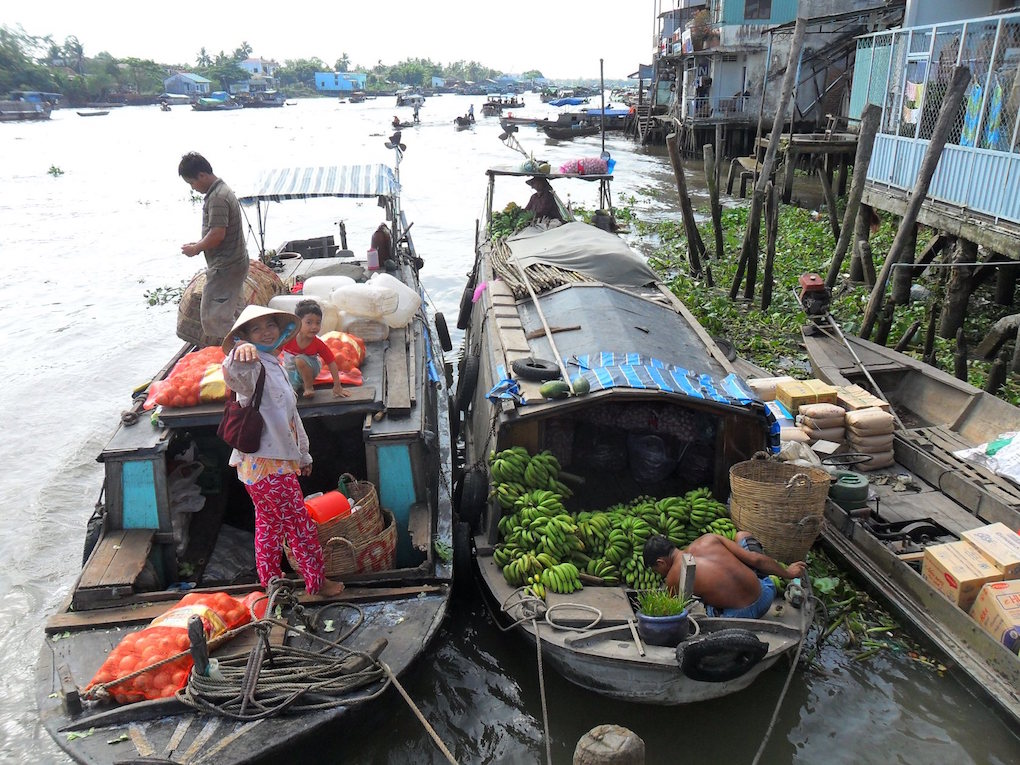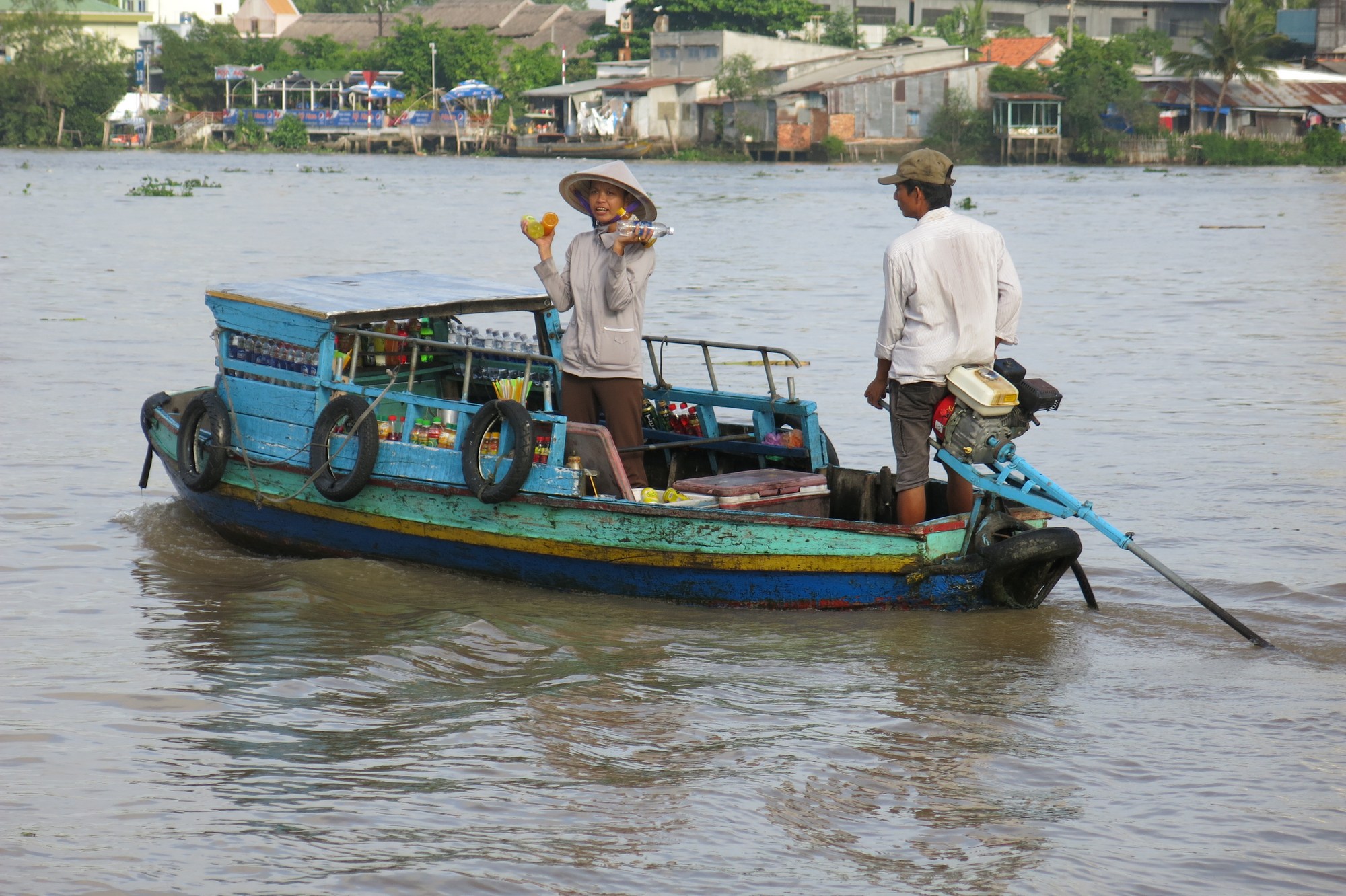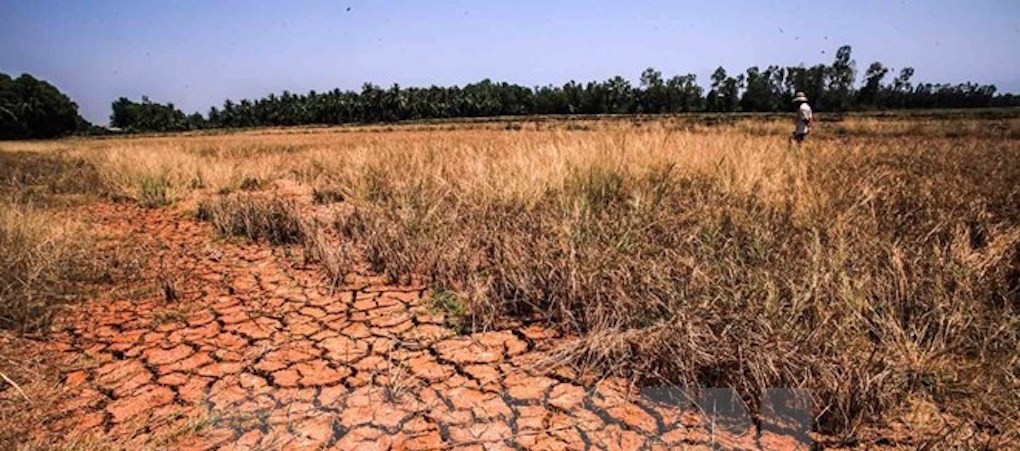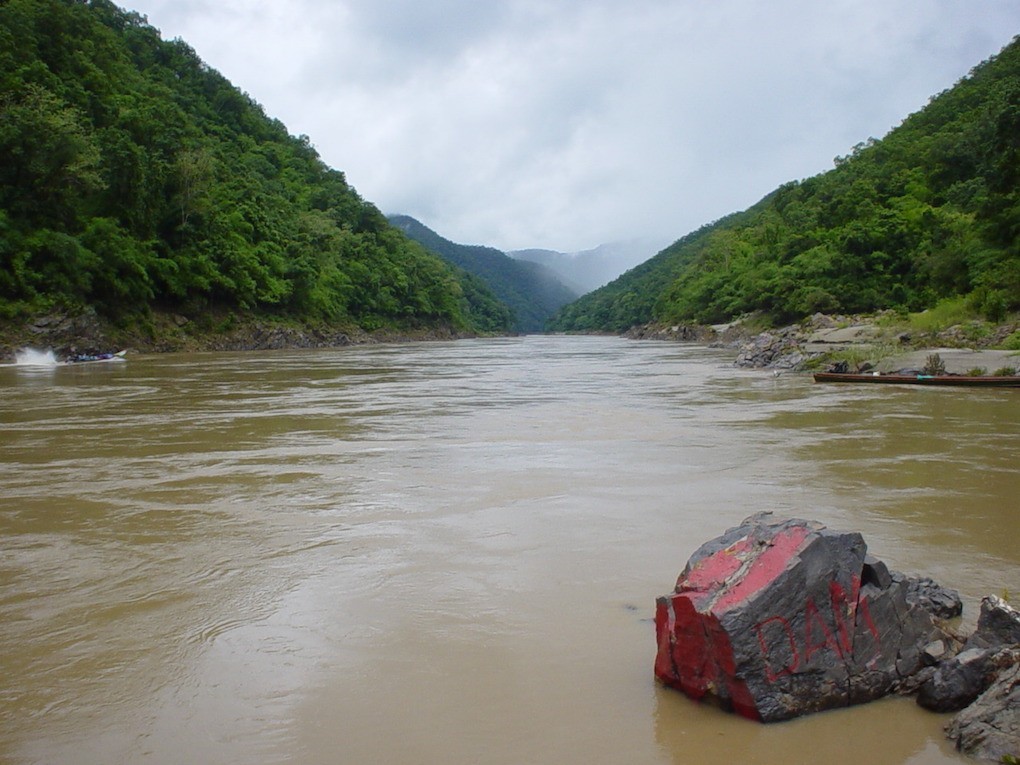The current severe drought and rise in sea level has caused saline intrusion in the Sai Gon and Dong Nai rivers. The two rivers supply raw water to more than 10 million residents and to businesses.
The high saline rate along with household and industrial pollutants in the river water has threatened the city’s water supply.
Water treatment plants in HCM City have had to shut down numerous times because raw water taken from the Sai Gon and Dong Nai was below standard.
The salinity rate in the rivers is at the highest level of the last five years, affecting operations of some of the pumping stations that supply water to the city.
Water pollution has become more serious in the Dong Nai River, which supplies 4,000 cu.m water per person in HCM City each year.







